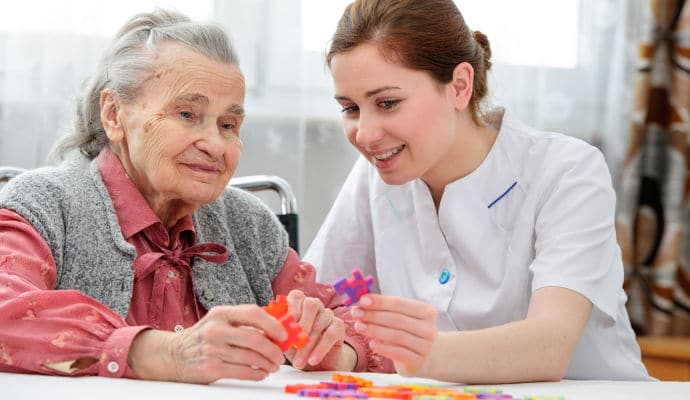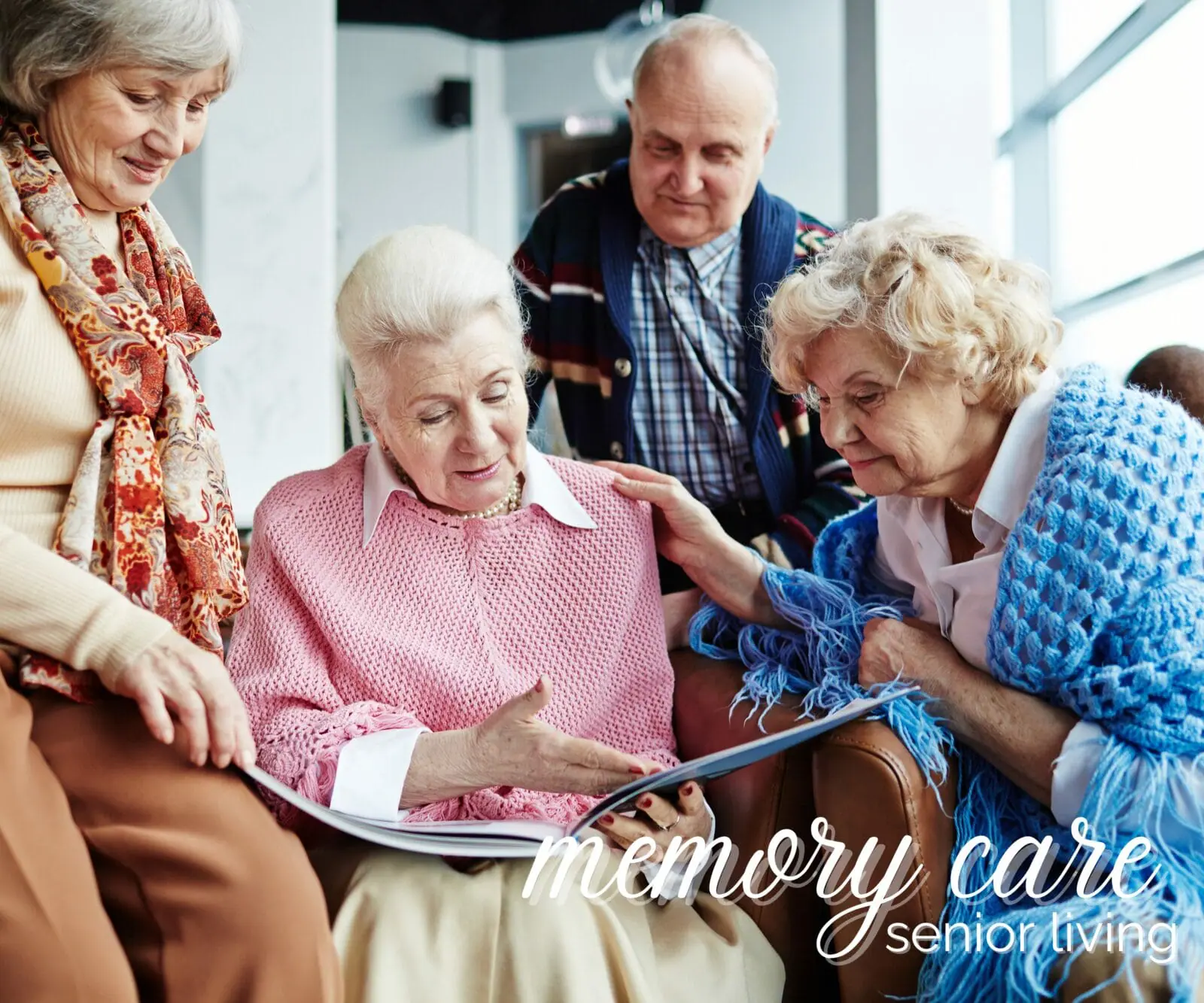Personalized Solutions for Households Looking For Alzheimers Care Charlotte
Personalized Solutions for Households Looking For Alzheimers Care Charlotte
Blog Article
Creating a Safe and Supportive Environment for Alzheimer's Treatment
The production of a supportive and safe environment for people with Alzheimer's is critical in boosting their quality of life. This involves not just physical adjustments within the home, such as reducing threats and incorporating acquainted elements, but also the application of organized routines and significant tasks that accommodate their cognitive requirements. Additionally, recognizing the emotional and mental dimensions of care can significantly affect their feeling of protection and connection. Discovering these multifaceted methods can disclose crucial understandings into reliable caregiving approaches that may transform the day-to-day experiences of both individuals and caregivers.
Comprehending Alzheimer's Demands
Often, individuals with Alzheimer's illness exhibit a range of demands that call for customized techniques to care. As the condition advances, cognitive decrease manifests in different ways, influencing memory, reasoning, and even the ability to perform day-to-day activities. Caretakers should acknowledge these advancing requirements to give ideal support and guarantee a better of life for those impacted.
One important element of understanding Alzheimer's needs is identifying the value of regular and knowledge. People typically find convenience in well established patterns, which can reduce stress and anxiety and complication. Caretakers ought to strive to create organized daily timetables that integrate meaningful tasks lined up with the individual's rate of interests and abilities.
Furthermore, effective communication is extremely important. Individuals with Alzheimer's may battle to express themselves or comprehend intricate language. Caregivers need to employ basic, clear language, use non-verbal hints, and practice active paying attention to promote understanding and connection.
Last but not least, emotional and social needs can not be forgotten. Providing possibilities for social communication and keeping connections can significantly improve psychological health. Caregivers must urge interaction in neighborhood tasks or household gatherings, promoting a feeling of belonging and objective. Understanding these diverse demands is crucial for producing a supportive care atmosphere.
Designing a Safe Home
Creating a secure home for people with Alzheimer's condition is important to advertising and reducing dangers self-reliance. The layout of the space should prioritize safety while permitting individual convenience. First, remove potential risks such as loose carpets, sharp items, and clutter, which can lead to falls or mishaps. Make sure that pathways are clear and well-lit, as correct illumination decreases disorientation and enhances flexibility.
Including adaptive attributes is likewise crucial. Set up grab bars in washrooms and near stairways, and consider utilizing non-slip floor coverings in wet locations. Furthermore, using different colors for wall surfaces and floorings can assist in identifying areas, aiding to reduce complication.
Familiarity is essential for people with Alzheimer's. Personalizing the atmosphere with acquainted objects and photos can enhance a feeling of belonging and safety and security - Alzheimers Care Charlotte. It is additionally advantageous to have a marked location for daily tasks, such as analysis or crafting, which can provide structure to their day
Finally, applying a secure outdoor area enables safe exploration while connecting with nature. By thoughtfully creating the home setting, caregivers can dramatically improve the high quality of life for individuals dealing with Alzheimer's illness.
Enhancing Interaction Abilities

Non-verbal communication, consisting of face expressions, gestures, and touch, plays an essential role in sharing empathy and understanding. Preserving eye get in touch with and a calm disposition can improve the comfort degree of the individual, advertising a feeling of safety and security.
Furthermore, it is essential to practice active listening. This involves being totally present, showing perseverance, and enabling the person to reveal themselves without interruption. Repeating More Bonuses may be necessary; caretakers ought to be prepared to take another look at topics or questions, as individuals with Alzheimer's might have a hard time with memory recall.
In addition, utilizing aesthetic aids or cues, such as pictures or familiar things, can help with acknowledgment and engagement. Eventually, enhancing interaction abilities has to do with constructing count on and developing an atmosphere where individuals feel listened to, valued, and understood, consequently enriching their lifestyle.
Motivating Social Interaction
Promoting purposeful social interactions can significantly boost the well-being of individuals with Alzheimer's illness. Involving with others not only helps battle sensations of isolation but also boosts cognitive function and emotional wellness. Structured social activities, such as group video games, arts and crafts, or songs therapy, produce possibilities for residents to link with peers and caretakers, which can bring about boosted state of mind and reduced stress and anxiety.
Producing a welcoming setting that urges socializing is important. This can be attained by preparing public rooms that facilitate interaction, such as look at this web-site cozy seating areas or activity spaces. Furthermore, integrating familiar and culturally appropriate activities can urge and trigger memories participation, enabling individuals with Alzheimer's to feel more pop over here connected to their previous experiences.
Furthermore, caretakers need to be educated to identify and advertise social interaction among locals. Basic motions, such as launching discussion or promoting tiny team discussions, can help individuals really feel valued and consisted of. Consistently set up get-togethers ought to be regular yet versatile, fitting varying levels of ability and interest. By focusing on social communication, we can substantially enrich the lives of those living with Alzheimer's, cultivating a feeling of neighborhood and belonging.
Sustaining Caregiver Well-being

To sustain caretakers, organizations ought to use regular training and instructional resources to improve their understanding of Alzheimer's condition and caregiving techniques. Offering access to break care solutions permits caretakers to take essential breaks, reducing tension and tiredness - Alzheimers Care Charlotte. In addition, fostering a community through support groups can assist in psychological sharing and the exchange of practical suggestions amongst caretakers, developing a network of common assistance
Psychological wellness sources, such as counseling services, can likewise be important in attending to the emotional toll caregiving can take. By prioritizing caretaker health, we develop an even more lasting caregiving environment that not just profits the caretakers themselves but also enhances the total top quality of treatment gotten by individuals with Alzheimer's. Eventually, sustaining caregivers is a vital element in fostering a efficient and thoughtful care setting.
Conclusion
To conclude, the production of a risk-free and supportive environment for people with Alzheimer's is important to improving their top quality of life. By prioritizing safety with thoughtful design, cultivating emotional well-being with acquainted aspects, and promoting involvement with structured routines, caretakers can considerably impact the total experience of those impacted by this condition. In addition, supporting caretaker wellness is crucial, as it ultimately adds to a more reliable and caring treatment environment.
Repeating might be essential; caregivers must be prepared to revisit questions or topics, as individuals with Alzheimer's might struggle with memory recall.

Report this page